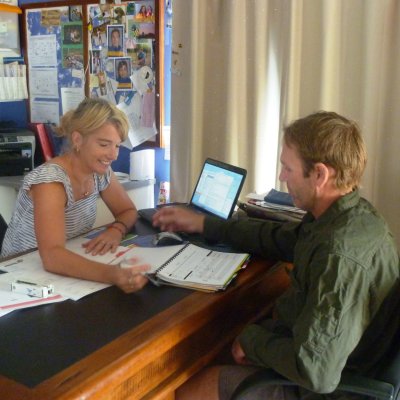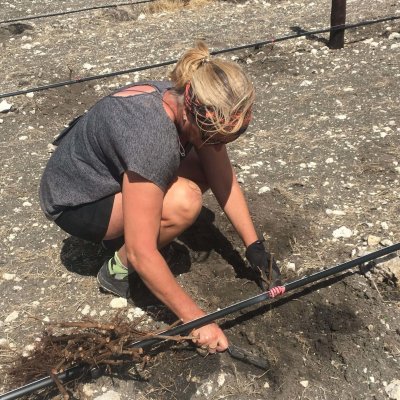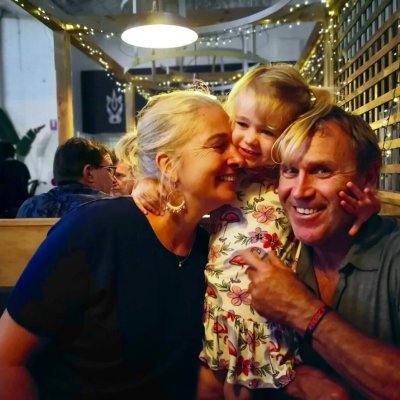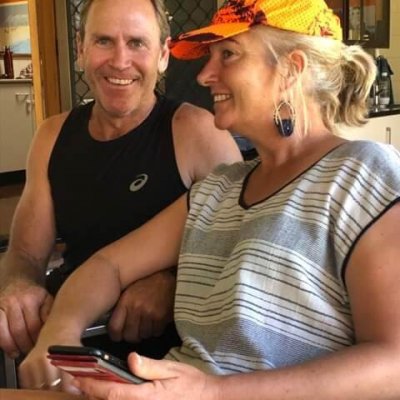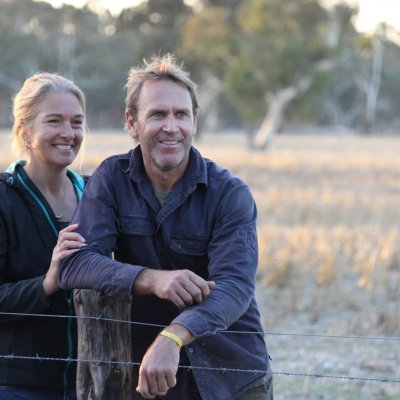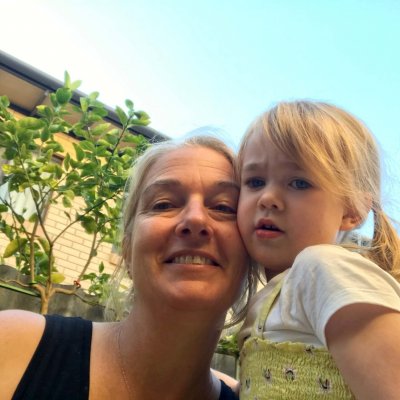Based on a farm near Padthaway in South Australia’s Limestone Coast region, Krysteen ‘always needing a challenge’ McElroy is a farmer, a mother, the Executive Officer of the Australian Fertiliser Services Association, and was a Finalist in the 2012 RIRDC Rural Women’s Award (SA). Krysteen prides herself on having been married for over thirty years, is infatuated with her grandchildren and cites “having the best of both worlds” as one of her favourite things about being a rural woman.
When asked what concerned Krysteen about the health and safety of those in rural industries, Krysteen highlighted a combination of production pressure, fatigue and an ageing workforce as key contributing factors to the likelihood of someone getting hurt. Krysteen reinforces the importance of remaining consciously aware of the potential dangers, and upon influencing change, heeds a message to other rural women that “You know your partner best. Be aware of the times they will be prepared to listen, discuss a topic and take on new information, and go from there”.
How would you describe yourself in three words?
Always needing a challenge!
What's one achievement you are most proud of?
My family!
Being married for thirty years to Bradley, our three daughters and the loves of our life – our grandchildren!
What makes you truly happy?
Spending time with our three grandchildren. They are such a joy and really make you think about what is important in life – and to take the time to just be in the moment.
What do you love the most about being a rural woman?
Having the best of both worlds! We can go to the city and enjoy what it has to offer – but then we get to return home to enjoy what we have right on our door step – open spaces, fresh air, community and the freedom to move around at whatever pace is required (no waiting in queues or traffic).
Being a rural woman you have to be resilient and have the ability to adapt to an ever-changing schedule that is not always set by you – quite often it is the weather or whatever event is happening on the farm at that particular moment.
Tell me about a time when you felt worried about your own or someone else’s health, safety or wellbeing on the farm, boat or in some other aspect of rural life.
It’s those moments when there is a lot going on, people are busy and perhaps tired and it will only talk a small error in judgement for something to go wrong. We can work for long hours in sometimes trying conditions and everyone has to be fully aware of what is happening around them – this can be of concern particularly when there are multiple generations in the one workplace.
As we age, our judgement can be altered – and even though we think we can still do what we used to do – sometimes that just isn’t possible.
What practical things did or could you, your partner and / or others do to prevent someone from getting hurt?
It is simply making people aware of the potential dangers – and making sure that we have done everything possible to protect our and other people’s well being.
We have put signs up around our sheds that say “STOP – consider if there is a safer way you could be doing this?”. Its a small thing, but if they make someone stop for a couple seconds and re-consider an action then it becomes a big thing.
"Women quite often come from a different perspective and because of this, we have a lot to offer. Even if you aren't involved in the business, your experiences could help question as to why something is being done in a particular way - they will need to think about the answer, and if its "because we've always done it this way" - then ask more questions. Get them thinking about the actual 'why'. "
Krysteen McElroy, Padthaway, South Australia AU Tweet this
Is there a time, place or scenario when your partner / workers are more willing to make changes to the way work is done?
Definitely not when they are tired or busy thinking about work. Usually when you are driving somewhere and have a few hours in the car is a good time – they can’t escape and are usually willing to have a chat about events and possibilities.
Time away from the farm is always a good way to gain some perspective on lots of things.
If you could give any advice to another rural woman about work health and safety in rural industries, about influencing change in business - or just in general - what would it be?
Small steps! Subtle hints – definitely not the sledge hammer approach.
Women quite often come from a different perspective and because of this, we have a lot to offer. Even if you aren’t involved in the business, your experiences could help to question as to why something is being done in a particular way – they will need to think about the answer, and if its “because we’ve always done it this way” – then ask more questions. Get them thinking about the actual ‘why’.
You know your partner best. Be aware of the times they will be prepared to listen, discuss a topic and take on new information and go from there.
Harvest, shearing, irrigating season, seeding etc are never ideal times to try and bring about change. Friday night drinks on the deck – rehashing the week that’s been maybe a good place to start.
Is there anything else you'd like to add?
Quite often we can feel like we are out here doing it alone – but don’t be afraid to call that person down the road who has been around for a while. Don’t forget she was once in your shoes and can offer support and just be a person that says – “I get where you are coming from and I have got your back!”
